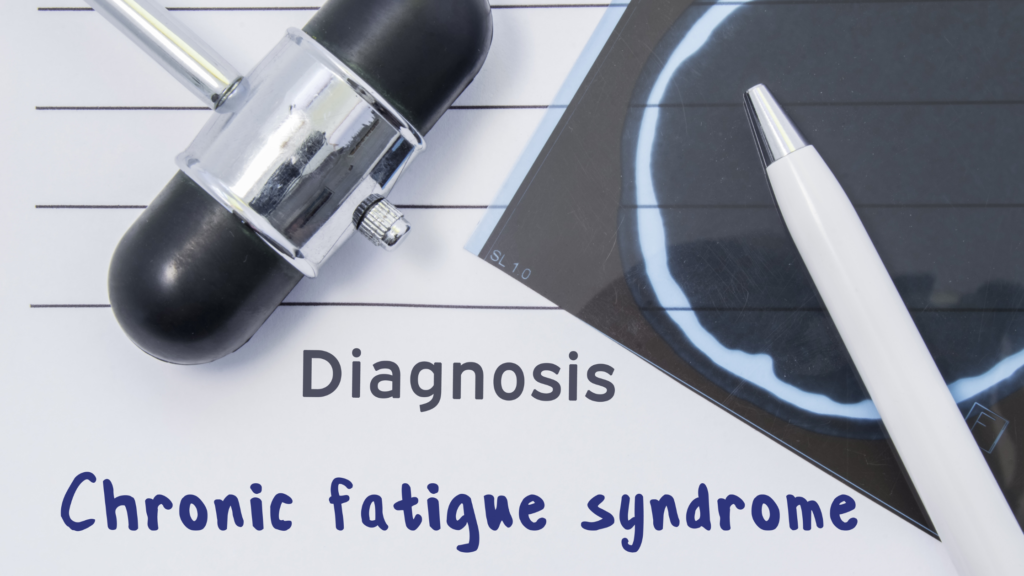
Berdi
urinary Track Health

Does every step, every thought, feel like a monumental effort, and the mere act of getting out of bed becomes an uphill battle? Well, you might have Chronic Fatigue Syndrome.
Did you know that despite its prevalence, chronic fatigue syndrome remains a perplexing puzzle for the medical community? Often dismissed as mere lethargy, this complex condition is far from ordinary fatigue. Chronic Fatigue Syndrome (CFS), also known as Myalgic Encephalomyelitis (ME), is a complex and debilitating condition that affects millions worldwide. Individuals with CFS experience persistent, unexplained fatigue that significantly impairs their daily activities. In this article, we delve into the intricacies of CFS, exploring its prevalence, causes, diagnosis, treatment options, and the promising role of COQ10 in managing its symptoms.
Chronic Fatigue Syndrome is characterised by prolonged, overwhelming fatigue that is not alleviated by rest. The fatigue experienced by individuals with CFS is often severe, affecting their ability to engage in routine tasks and activities. Unlike ordinary fatigue, CFS persists for at least six months and is accompanied by a range of symptoms, including muscle pain, sleep disturbances, impaired memory, and concentration issues.
CFS is a global health concern, affecting people of all ages and backgrounds. The prevalence of this condition is challenging to determine accurately due to underdiagnosis and the complex nature of its symptoms. The Centers for Disease Control and Prevention estimates suggest that between 836,000 and 2.5 million Americans may be affected by CFS, with a higher prevalence in women than men.

The exact causes of CFS remain elusive, making it a challenging condition to understand and treat. Multiple factors may contribute to its development, including viral infections, immune system dysfunction, hormonal imbalances, and genetic predisposition. Psychological factors, such as stress and trauma, can also play a role in triggering or exacerbating symptoms.
Certain risk factors, such as age, gender, and a history of certain infections, may increase the likelihood of developing CFS. Additionally, individuals with a family history of autoimmune disorders may be more susceptible to CFS.
Researchers believe that a combination of factors, including immune system dysfunction, neuroendocrine abnormalities, and genetic predisposition, contribute to the development and persistence of CFS symptoms. The intricate interplay between these factors makes it a complex condition that requires comprehensive research for a complete understanding.
Diagnosing CFS can be challenging due to the absence of specific laboratory tests or biomarkers. Healthcare professionals rely on clinical evaluation and the exclusion of other medical conditions with similar symptoms. The diagnostic criteria established by health organisations such as the Centers for Disease Control and Prevention (CDC) and the World Health Organization (WHO) include persistent fatigue lasting at least six months, along with other characteristic symptoms.

While there is no cure for Chronic Fatigue Syndrome, various treatment approaches aim to manage symptoms and improve quality of life. These may include a combination of medications, lifestyle modifications, and cognitive-behavioural therapy. In recent years, there has been growing interest in the potential benefits of nutritional supplements, such as COQ10, in alleviating CFS symptoms.
Although the field of CFS research is evolving, the potential approaches to treating CFS are the following.
It’s crucial to note that the management of CFS/ME varies among individuals, and treatment plans should be tailored to each patient’s specific needs. Additionally, ongoing research may advance our understanding of CFS/ME and its treatment options.
Coenzyme Q10 (COQ10) is a naturally occurring antioxidant that plays a crucial role in cellular energy production. Some studies suggest a link between COQ10 deficiency and Chronic Fatigue Syndrome, leading to investigations into its potential as a therapeutic supplement.
Research studies have shown promising results regarding the use of COQ10 in managing CFS symptoms. A study published in the “Antioxidants & Redox Signaling” demonstrated that COQ10 supplementation significantly improved fatigue, physical performance, and overall well-being in individuals with CFS.
In another study published in the “International Journal of Molecular Sciences”, researchers found that COQ10 supplementation improved mitochondrial function and reduced oxidative stress in individuals with post-viral fatigue syndrome. These findings highlight the potential benefits of COQ10 in addressing the underlying mechanisms of CFS.
It’s essential to note that while these studies show promise, further research is needed to establish the optimal dosage and long-term effects of COQ10 supplementation for individuals with CFS.

Preventing CFS involves addressing potential risk factors and adopting a healthy lifestyle. Managing stress, maintaining a balanced diet, and getting regular exercise can contribute to overall well-being and potentially reduce the risk of developing CFS. However, given the complex and multifaceted nature of the condition, prevention strategies remain challenging and may not be foolproof.
Chronic Fatigue Syndrome remains a complex and challenging condition with no one-size-fits-all solution. As research continues to unravel the mysteries surrounding CFS, promising avenues such as COQ10 supplementation offer hope for improved symptom management.
Route2Health’s Hicrom Plus provides you with 100 mg of Coenzyme Q10. It is a unique formulation that improves the energy and metabolism required as you age. CoQ10 has been proven to improve symptoms of chronic fatigue syndrome. So, if you have been diagnosed with CSF or experience fatigue in general, Hicrom Plus can help you regain your energy and potential.
Chronic Fatigue Syndrome is characterised by persistent, unexplained fatigue, along with symptoms such as muscle pain, sleep disturbances, and cognitive difficulties.
Diagnosis involves clinical evaluation, exclusion of other conditions, and adherence to established criteria, such as those by the CDC and WHO.
While there is no cure, treatments focus on symptom management and may include medications, lifestyle changes, and nutritional supplements like COQ10.
According to research studies, COQ10, a natural antioxidant, has shown promise in improving fatigue and overall well-being in individuals with CFS.












